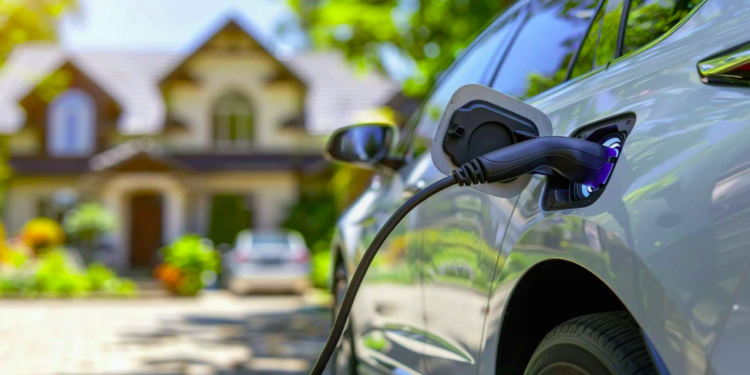As electric vehicles (EVs) gain popularity in Kenya, many potential buyers are wondering: Can you conveniently charge an electric car at home in Kenya? The short answer is yes, but there are important factors to consider. This guide will explain everything you need to know about home EV charging in Kenya, from installation options to power requirements, costs, and practical tips to ensure an efficient setup.
Understanding Home EV Charging Options
Charging an electric vehicle at home in Kenya is possible through two main options:
1. Standard 3-Pin Plug Charging
- This is the simplest and most affordable option. You can plug your EV directly into a standard household socket (240V).
- While convenient, this method is slower and may take up to 24 hours for a full charge, depending on your car’s battery size.
- Suitable for overnight charging if you have ample time before your next trip.
- Requires minimal installation — you can plug in directly with no additional hardware. However, using a surge protector is recommended to safeguard against power fluctuations.
2. Dedicated Home EV Charger (Wallbox)
- Installing a dedicated wall-mounted EV charger significantly improves charging speed.
- These chargers provide higher power output, typically between 3.6kW to 7.4kW, cutting charging times by half or more.
- A typical 40 kWh battery can fully charge in 5 to 8 hours using a wallbox charger.
- Professional installation by a qualified electrician is recommended to ensure safety and efficiency.
- Some smart wallbox models offer advanced features such as scheduled charging, remote monitoring, and energy consumption tracking.
Steps to Install a Home EV Charger in Kenya
To install a dedicated EV charger at home in Kenya, follow these steps:
1. Assess Your Electrical Supply
- Ensure your home’s wiring can handle the additional load. Older homes may require an electrical upgrade to support EV charging safely.
- Consult a certified electrician to evaluate your home’s electrical system and recommend suitable upgrades if needed.
2. Choose a Suitable Charger
- Select a wallbox charger that meets your car’s power needs and fits your budget.
- Brands such as Rolec, Zappi, and EO Charging are commonly recommended for home installations due to their reliability and smart features.
3. Hire a Licensed Electrician
- Professional installation ensures safe operation, proper earthing, and circuit protection.
- The electrician will install a dedicated circuit breaker for your EV charger to prevent electrical overload.
4. Notify Kenya Power (KPLC)
- It is advisable to inform Kenya Power if you’re installing a high-power EV charger to ensure your supply line can handle the additional demand.
- KPLC may advise on optimal charging times to avoid overloading the grid during peak hours.
Cost of Charging an Electric Car at Home in Kenya
Charging costs vary based on your electricity tariff and vehicle battery size. On average:
- Kenya Power’s domestic tariff charges approximately Ksh 20 per kWh.
- For a typical 40 kWh battery, a full charge would cost around Ksh 800.
- Larger batteries, such as those found in long-range EV models (e.g., Tesla Model 3 or BYD Han), may require 70 kWh or more for a full charge, costing roughly Ksh 1,400.
Comparison with Fuel Costs
- An average petrol car might consume 8 liters per 100 km, costing approximately Ksh 1,200 for the same distance.
- Charging an EV is often 30-50% cheaper than fueling a petrol or diesel car, making electric vehicles an economical option for Kenyan drivers.
Best Practices for Efficient Home EV Charging
To maximize efficiency and safety when charging your EV at home:
- Charge Overnight: Kenya Power offers lower electricity rates during off-peak hours, making overnight charging both cost-effective and efficient.
- Invest in a Smart Charger: Smart chargers allow you to schedule charging times, reducing costs while maximizing battery life.
- Maintain Your Charger: Regularly inspect cables and plugs for wear or damage to ensure safe operation.
- Ensure Proper Ventilation: Position your charger in a well-ventilated space to prevent overheating.
Potential Challenges of Home EV Charging in Kenya
While home EV charging is practical, there are a few challenges to consider:
1. Power Outages
- Kenya occasionally experiences power interruptions, which can disrupt charging schedules.
- Investing in a backup power system, such as a solar battery storage unit or generator, can ensure consistent charging.
2. Voltage Fluctuations
- Voltage inconsistencies may affect EV charger performance and battery longevity.
- Installing a voltage stabilizer can protect your EV and ensure smooth charging.
3. Limited Space for Wallbox Installation
- For those living in apartments or shared spaces, dedicated charging stations may be harder to install.
- In such cases, explore shared charging solutions or portable EV chargers as alternatives.
Where to Find EVs in Kenya
If you’re considering purchasing an electric car, platforms like Auto24 Kenya offer a variety of second-hand EV options to suit different budgets and preferences. Exploring these listings can help you identify models with compatible charging systems for your home setup.
Popular EV models available in Kenya include:
- Nissan Leaf – A budget-friendly option ideal for city driving.
- BMW i3 – Compact yet efficient with fast-charging capabilities.
- Hyundai Kona Electric – Offers an impressive range suitable for longer drives.
The Future of Home EV Charging in Kenya
Kenya’s growing adoption of renewable energy, particularly solar power, presents exciting opportunities for EV owners. Installing solar panels can reduce your reliance on grid electricity and further lower your charging costs.
Home solar solutions are becoming increasingly affordable, and combining solar power with a battery storage system allows EV owners to enjoy clean, low-cost energy for their charging needs.
For additional insights on automotive trends in Kenya, visit Automag Kenya for expert advice, reviews, and driving tips tailored to Kenyan motorists.
Conclusion
Charging an electric car at home in Kenya is both feasible and cost-effective with the right setup. Whether you opt for a standard 3-pin plug or a dedicated wallbox charger, investing in efficient home charging solutions will enhance your EV experience. Embrace the shift to electric mobility and enjoy cleaner, greener driving in Kenya.




